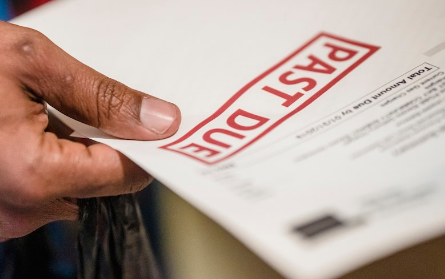Prep to Collect: Key Collection Questions & Important Documentation
You’ve gone around and around with your debtor for weeks, maybe even months, but still haven’t received past-due payments. You decide you need collection assistance and think about hiring an attorney. These four collection questions can help determine the best debt recovery plan for your business and better assist in communicating with and demanding payment from your customer.
Four Questions to Consider When Placing Your Collection with an Attorney
How Much Am I Owed?
The amount of money you’re owed can greatly impact how you proceed with the collection process. If it’s a larger past-due payment and/or from a high-risk account, you may want to bypass an in-house placement and send your case right to an experienced attorney for review.
How Past-Due Is the Payment?
It’s important to know exactly how long your receivable has gone unpaid. There could be a pertinent underlying reason for late payments, such as your debtor experiencing financial distress, or maybe there are payment issues higher up the ladder of supply. It’s critical to get out in front on the collection process because the longer an amount goes unpaid, the harder it is to collect. Some studies indicate that after six months the collectability of a past-due amount can be reduced by as much as 52%.
Am I Involved In an Ongoing Dispute with the Debtor?
If you’re involved in an ongoing dispute with the debtor, over issues such as invoice discrepancies or quality-of-work, it could result in late payments. Therefore, we recommend placing your collection with an attorney who will work quickly to resolve dispute(s) and ultimately get you paid.
Is It a Secured Amount?
If you have security in place, such as a UCC filing, mechanic’s lien or bond claim, we recommend attorney involvement to best leverage your security. For example, if you have a lien on an unpaid project, an attorney can assist in resolving the balance owed, including, if necessary, foreclosing on that lien. Similarly, if there is a UCC in place, an attorney can proceed with replevin action or repossession through the courts.
Importance of Documentation in the Collection Process
Why Do I Need Supporting Documentation?
Any collection professional needs thorough, up-to-date information to best demand payment from your debtor. Providing the proper documentation at the start of the collection process will allow an attorney to efficiently and effectively handle your claim – putting you in the best position for receiving payment.
What Type of Documents Do I Need?
Supporting documentation? The more the merrier! Every collection attorney requires basic information such as the debtor’s full name, physical address and the amount owed. However, we recommend you also provide any additional paperwork that supports your claim. This could include signed invoices, written contracts or agreements, proofs of delivery and/or bills of lading. With access to proper backup documentation, the collector can speak more intelligently regarding your claim and even speed-up the collection process.
Important Documents to Include
- Contract or Agreement
- Credit Application
- Invoices and Statement of Account: this should include copies of returned / NSF checks
- Purchase Orders
- Proof of Deliveries
- Personal Guarantee
- Trade References
- Correspondence & Notes: this could include emails, letters (demand letters, payment requests & notices) and documented phone conversations
- Corporate Certificate: this should include your debtor’s legal identity, including whether it is a corporation, partnership or proprietorship
- Credit Report
Unfortunately, there’s no sure way of determining the collectability of a past-due account. Therefore, it’s best to weigh the costs against the potential debt recovery and be proactive in your efforts – start taking steps to secure future receivables today.
Are you caught up in past-due payments and need some collection expertise? Let our national network of attorneys, specializing in secured and unsecured commercial collections, help get you paid!
